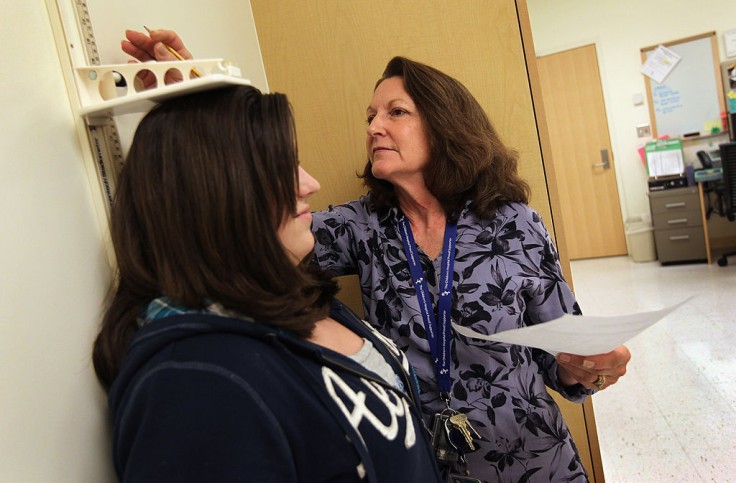
Childhood obesity is a growing epidemic in the modern world, affecting millions of young lives and extending its detrimental consequences into adulthood.
The fight against childhood obesity begins at home, and parents hold the key to turning the tide.
By leading by example, parents can instill habits of healthy living that will shield their children from the impacts of obesity, potentially for a lifetime.
With that, here are the complexities of childhood obesity and actionable insights into how parenting can make a difference.
Understanding Childhood Obesity
Before tackling the issue at hand, it's crucial to understand what childhood obesity is and why it's a concern.
Childhood obesity is defined as having a body mass index (BMI) above the 95th percentile for children and teens of the same age and sex.
This condition poses significant health risks, such as heart disease, diabetes, and even mental health issues like depression.
In addition to health complications, childhood obesity can lead to social challenges, including bullying and low self-esteem. This makes addressing the issue a critical part of parenting that extends beyond merely aesthetic or physical concerns.
Parenting's Role in Combatting Childhood Obesity
Parenting is not just about ensuring your child gets good grades or behaves well; it's also about safeguarding their physical and emotional health. This includes mitigating the risks of childhood obesity. Kids are quick to mimic the behavior of adults around them, meaning that leading by example is a powerful tool in a parent's arsenal.
1. Healthy Eating
One of the most effective ways to lead by example is through nutrition. Ensure that your household has a steady supply of fruits, vegetables, and whole grains while limiting access to sugary snacks and beverages. When children see their parents making healthy food choices, they are more likely to emulate those habits. This is not just beneficial for reducing childhood obesity but is also a cornerstone of healthy living in general.
2. Physical Activity
The importance of regular physical activity can't be overstated when it comes to combating childhood obesity. This is another area where parents can lead by example. Whether it's going for a family bike ride, taking walks together, or just playing a game of catch in the yard, parents who actively engage in physical activities with their children inspire them to be active too.
3. Screen Time Management
Reducing the hours spent in front of the screen can have a direct impact on childhood obesity rates. Encourage activities that don't involve gadgets and set screen time limits. When kids see their parents reading, engaging in hobbies, or just spending time outdoors, they too are encouraged to explore life beyond the screen.
4. Emotional Support and Open Dialogue
Talking openly with your children about the importance of healthy living can give them the information and motivation they need to make better choices.
Emotional support plays an enormous role in effective parenting and is crucial in battling childhood obesity. When children feel understood and supported, they are more likely to take their parents' advice to heart, thereby incorporating healthy living into their daily routine.
5. Prioritize Health Over Physical Appearance
Often, the emphasis on body image overshadows the actual importance of health. Parents who focus solely on physical appearance run the risk of encouraging negative behaviors that could lead to eating disorders or unhealthy dieting practices.
To effectively combat childhood obesity, the emphasis should be on healthy living rather than achieving a certain look. By leading by example in this regard, parents can show their children that the ultimate goal is to feel good and stay healthy, not merely to fit into society's narrow definitions of beauty.
6. Establish Regular Sleep Patterns
One often-overlooked aspect of healthy living that can help fight childhood obesity is the importance of consistent sleep routines. Lack of sleep has been linked to weight gain, poor eating habits, and decreased physical activity. Parents can lead by example by setting and following consistent sleep schedules, demonstrating the importance of restful sleep to overall health. This simple yet effective parenting strategy not only aids in reducing the risk of childhood obesity but also helps in improving cognitive function and emotional well-being in children.
7. Be Active Together as a Family Unit
The adage "the family that plays together, stays together" has significant merit when combating childhood obesity. Moving more as a family can be as simple as going for walks, having dance-offs in the living room, or taking weekend trips that involve physical activities like hiking or swimming. Parents who take the initiative to incorporate these activities naturally lead by example, showcasing the joy and benefits of an active lifestyle. Family participation in physical activities not only encourages healthy living but also strengthens family bonds, making it a win-win situation for everyone involved.
The Ripple Effect of Leading by Example
Leading by example creates a ripple effect that goes beyond the immediate family.
When parents model healthy living, their children are not only less likely to suffer from childhood obesity, but they also become champions of healthy habits among their peers.
This collective transformation is crucial to turning the tide against the rising rates of childhood obesity.
The power of parenting in the fight against childhood obesity cannot be underestimated. Parents who lead by example, prioritizing healthy living in their own lives, empower their children to do the same.
The strategies highlighted above are neither exhaustive nor instantaneous, but they offer a sustainable and impactful way to create lasting change.
Childhood obesity is not just a personal or family issue; it's a societal challenge that we must address collectively.
The responsibility begins at home, with parenting that leads by example to instill the values of healthy living. In doing so, we can ensure that our children grow up in a healthier, happier world.